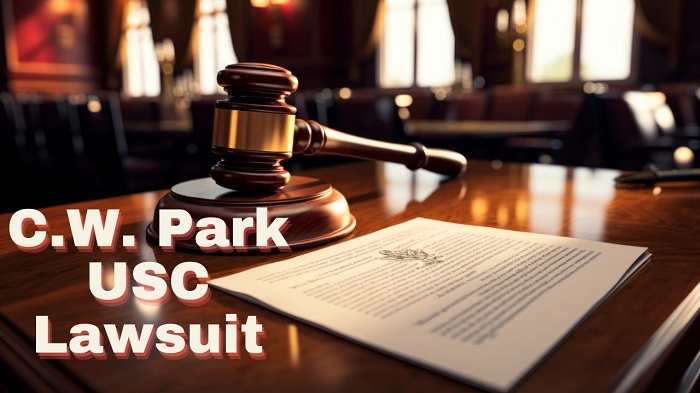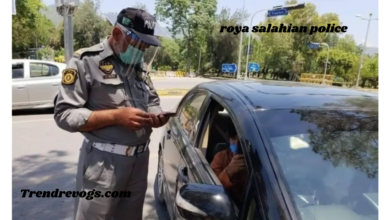C.W. Park USC Lawsuit: A Deep Dive into Allegations and Institutional Accountability

The lawsuit involving Professor C.W. Park and the University of Southern California (USC) has cast a spotlight on the darker undercurrents of academia, revealing a troubling narrative of alleged sexual harassment, assault, discrimination, retaliation, and the failure of an esteemed institution to address such serious concerns adequately. This case not only underscores the personal trauma experienced by the alleged victim but also prompts a broader discussion on the mechanisms of accountability and protection within academic environments.
Background and Key Figures
C.W. Park, a revered figure in the academic circle, had been a part of USC’s Marshall School of Business since 2006. His reputation in the marketing field was well-acknowledged, both nationally and internationally. On the other side of the lawsuit was Professor Christina Woo Park, a respected professor of social work at USC, whose career spanned over two decades dedicated to academia and social work.
The Allegations
The heart of this legal battle lies in the allegations brought forth by Christina Woo Park against C.W. Park. The accusations were severe, detailing more than two decades of alleged sexual harassment, including unwanted advances, groping, and explicit communications. Park also accused C.W. Park of sexual assault, alleging that he used intimidation and sometimes drugs/alcohol to assault her. Furthermore, she claimed that her career suffered due to discrimination and sabotage, especially after she rebuffed C.W. Park’s advances or attempted to report his behavior.
USC’s Role and Responsibility
The lawsuit also scrutinized USC’s role in the alleged misconduct. Christina Woo Park accused the university of negligence in its hiring and supervisory practices concerning C.W. Park. According to the lawsuit, USC failed to take appropriate action upon receiving complaints about his behavior, thus breaching its contract and fiduciary duties to uphold its policies against sexual misconduct and discrimination. The university was also accused of intentionally inflicting emotional distress by allowing a hostile work environment to persist.
Settlement and Aftermath
The legal confrontation concluded in November 2021 with a settlement between Christina Woo Park and USC. The settlement terms were not disclosed to the public, which has been a contention and concern among observers who hoped for more transparency. Following the allegations, C.W. Park resigned from his position at USC, marking a significant, albeit controversial, end to his long-standing career there.
Discussion and Implications
The lawsuit has ignited significant discussion about the dynamics of power, accountability, and the safeguarding of individuals within academic settings. Critics argue that the case highlights a systemic failure to address and prevent misconduct, suggesting that institutions like USC must undertake more rigorous measures to protect their members. The need for transparent investigation procedures and the enforcement of strict policies against harassment and discrimination has never been more apparent.
The settlement, while closing a chapter for the involved parties, leaves unanswered questions about the efficacy of current systems in place to combat sexual misconduct in academia. It serves as a reminder of the ongoing struggle to create environments where educators and students can pursue academic excellence without fear of harassment or discrimination.
In conclusion, the C.W. Park USC lawsuit is a stark reminder of the challenges academic institutions face. It calls for a renewed commitment to ethical conduct, accountability, and the establishment of a culture that vehemently opposes any form of harassment or discrimination. As the academic community grapples with these issues, the hope is that this case will spur meaningful change, ensuring a safer and more equitable environment for all.
FAQs: C.W. Park USC Lawsuit
1. What are the main allegations against C.W. Park in the lawsuit?
The main allegations against C.W. Park include sexual harassment, assault, discrimination, and retaliation against Professor Christina Woo Park over more than 20 years. The claims detail unwanted advances, groping, explicit communications, and instances of sexual assault, some allegedly involving the use of drugs/alcohol.
2. How did USC allegedly fail to address the complaints against C.W. Park?
The lawsuit accuses USC of negligence in its hiring and supervisory practices concerning C.W. Park, failing to take adequate action upon receiving complaints about his behavior, thereby breaching its contract and fiduciary duties to uphold policies against sexual misconduct and discrimination. It also alleges that USC intentionally inflicted emotional distress by allowing a hostile work environment to persist.
3. What was the outcome of the lawsuit between Christina Woo Park and USC?
The lawsuit concluded with a settlement between Christina Woo Park and USC in November 2021. The specific terms of the settlement were not disclosed to the public.
4. Did C.W. Park face any consequences due to the lawsuit?
Yes, C.W. Park resigned from his position at USC following the allegations made against him in the lawsuit.
5. Why is the C.W. Park USC lawsuit significant?
This lawsuit is significant because it highlights the issues of sexual harassment, assault, and discrimination within academia, along with the alleged failure of a prestigious institution like USC to address and prevent such misconduct adequately. It brings to the forefront the importance of accountability, transparency, and the need for institutions to create safe environments for all members.
6. How has the academic community reacted to the lawsuit and its settlement?
The academic community’s reaction has been mixed, with some expressing concern over the lack of transparency regarding the settlement’s terms and the broader implications for how institutions handle misconduct allegations. There is a call for more rigorous policies and procedures to protect individuals from harassment and discrimination.
7. What are the broader implications of this lawsuit for academic institutions?
The lawsuit underscores the need for academic institutions to critically examine and improve their policies and procedures related to harassment, discrimination, and retaliation. It suggests a pressing need for mechanisms that ensure accountability, protect victims, and prevent misconduct, highlighting the importance of fostering a culture of respect and safety in academia.
8. Can institutions like USC be held liable for the actions of their employees?
Yes, institutions can be held liable for the actions of their employees, especially if it is determined that they failed to take adequate steps to prevent harassment, discrimination, or retaliation or if they neglected to act upon complaints by their policies and legal obligations.
9. What can victims of similar misconduct in academic settings do?
Victims are encouraged to report the misconduct to their institution’s Title IX office or equivalent department handling such complaints. Seeking legal advice can also help them understand their rights and options. Additionally, many institutions offer counseling and support services for victims of harassment and assault.
10. Are settlements typical in lawsuits involving allegations of sexual misconduct in academia?
Yes, settlements are relatively common in lawsuits involving allegations of sexual misconduct in academia. They allow the involved parties to resolve the dispute without going to trial, which can be a lengthy and public process. However, the specifics of these settlements are often confidential, which can limit public awareness and discussion about the case and its implications.




